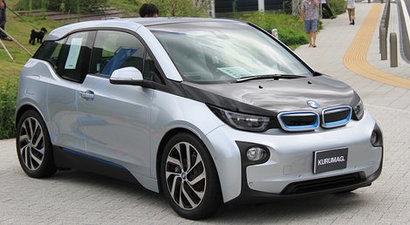
According to a new forecast by DNV GL, this growth follows an S-shaped curve of innovation. The company’s annual Energy Transition Outlook provides a forecast of the global energy landscape up to 2050. Statistics from the World Economic Forum reveal that several countries, including Germany, Norway, Netherlands, UK, France and India have already set out targets to phase-out or ban petrol and diesel cars in the years to come. The forecasts in DNV GL’s Energy Transition Outlook reveal that these targets are achievable. However, there are challenges facing the uptake of EVs, including cost, range anxiety and concerns about infrastructure.
DNV GL has also outlined its ambitions for this growing sector, aligning with its mission to shift the industry from being policy-driven to market-driven and supporting its customers to overcome the challenges facing the industry. Based on 10 years of experience working with stakeholders across the EV value-chain, including automotive OEMs, charge point operators, network operators, utilities and governments, DNV GL has identified four clear areas of expertise; safety, communication and control, flexibility and emerging technologies.
Focusing on these four areas, the company will support its customers to adopt new technologies, implement policy and make decisions that adapt current technological, economical, and regulatory business models to take advantage of this rapidly growing market.
As part of its strategic focus on the EV market, DNV GL has appointed Jeremy Parkes as global business lead for EVs. Jeremy has 20 years’ experience in the automotive and renewable energy industries, at Rolls Royce, Garrad Hassan and Belltown Power. He has a proven ability to deliver strategic insight and achieve substantial growth in new business areas and will be responsible for defining and developing DNV GL’s services in the EV sector, to cement the company’s role as a leader in this fast-developing field.
“The EV revolution is the start of a huge transition in the automotive industry, which has been dominated by the internal combustion engine for more than a century” said Mr Parkes. “The combination of electric vehicles, substantial growth in renewable energy generation and the expansion of smart grid solutions will be key enablers of the clean and flexible energy systems of the future.”
Ditlev Engel, CEO, DNV GL – Energy, added that the growth of EVs signals real progress in reducing our carbon emissions globally and that in order to overcome the challenges facing the industry, the development of EVs and associated infrastructure will need to go from being only policy-driven to also being market-driven.
For additional information:

